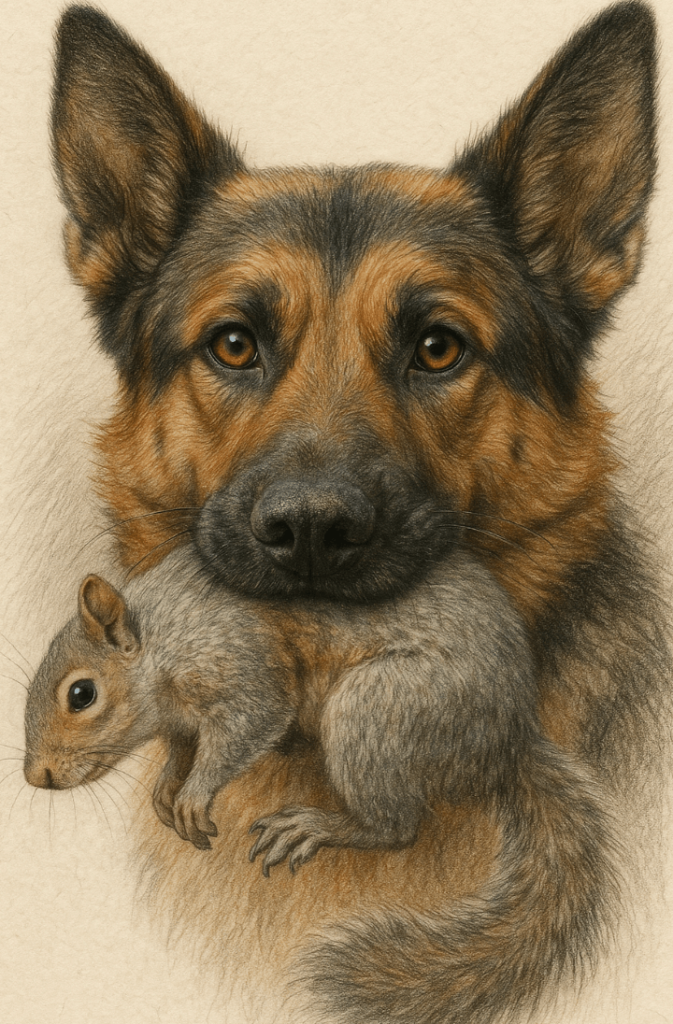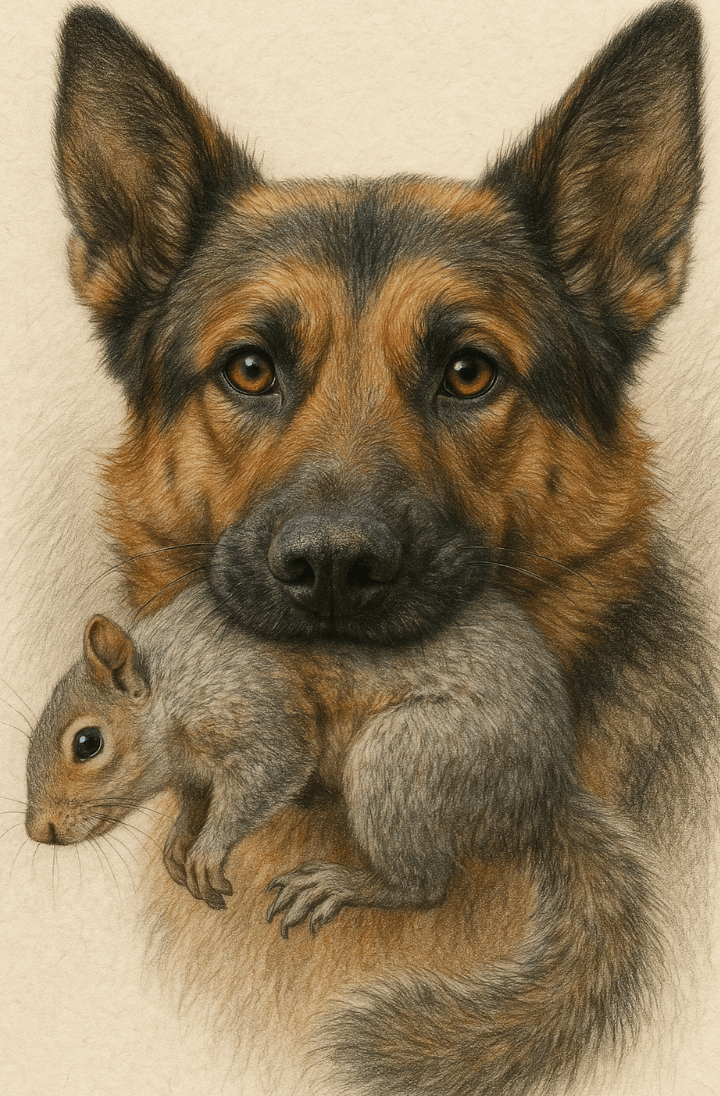Can Dogs Eat Squirrels? What You Need to Know
Dogs are natural hunters, and their instincts often lead them to chase small animals like squirrels. But what happens if your furry friend catches one? Can dogs eat squirrels, or is it dangerous for them? While some dogs may view squirrels as a tasty snack, there are important considerations to keep in mind before allowing your pup to indulge. In this blog post, we’ll explore the risks and benefits of dogs eating squirrels, how to handle such situations, and safer alternatives to satisfy your dog’s hunting instincts. Whether you’re a curious pet owner or dealing with a squirrel-chasing hound, this guide will help you make informed decisions about your dog’s diet and safety.
Potential Risks of Dogs Eating Squirrels
While it might seem harmless for a dog to eat a squirrel, there are several risks associated with this behavior. Understanding these dangers can help you prevent potential health issues.
Parasites and Diseases:
Squirrels can carry parasites like fleas, ticks, or worms, which may infect your dog if ingested.Bacterial Infections:
Raw meat from squirrels can harbor harmful bacteria such as Salmonella or E. coli, posing a risk to both dogs and humans.Bones and Choking Hazards:
Small bones from squirrels can splinter, causing choking, intestinal blockages, or damage to your dog’s digestive tract.Toxins or Poisons:
Squirrels in urban areas may have been exposed to rodenticides or other toxins, which can be fatal if consumed by your dog.Aggressive Behavior:
Encouraging hunting instincts may lead to aggressive or territorial behavior, especially toward smaller pets or wildlife.
These risks highlight why it’s essential to monitor your dog closely and discourage them from eating squirrels.
Benefits of Allowing Natural Hunting Instincts (With Caution)
While eating squirrels isn’t recommended, allowing your dog to engage in controlled hunting behaviors can have some benefits. Here’s how to balance their instincts with safety.
Mental Stimulation:
Chasing squirrels satisfies your dog’s natural prey drive, providing mental enrichment and reducing boredom.Physical Exercise:
The act of chasing and running helps burn off excess energy, promoting a healthier lifestyle.Bonding Opportunities:
Supervised outdoor play that mimics hunting can strengthen the bond between you and your dog.Training Rewards:
Redirecting hunting instincts into structured activities, like fetch or agility training, reinforces obedience and discipline.Confidence Building:
Allowing safe exploration of their instincts can boost your dog’s confidence and overall well-being.
By channeling their hunting instincts into positive outlets, you can ensure your dog stays happy and healthy without unnecessary risks.
Check this guide 👉Can Dogs Eat Muscadines? Best 7 Expert Tips!
Check this guide 👉Can Dogs Eat Pozole? Best 7 Expert Tips!
Check this guide 👉Can Dogs Eat Carnitas? Best 7 Expert Tips!

Safe Alternatives to Squirrel Hunting | Risks of Eating Squirrels |
|---|---|
Interactive toys that mimic prey | Parasites like fleas or ticks |
Freeze-dried meat treats | Bacterial infections from raw meat |
Supervised games of fetch or tug-of-war | Splintered bones causing injuries |
Puzzle feeders for mental stimulation | Exposure to rodenticides or toxins |
Agility courses for physical activity | Aggressive behavior toward other animals |
What to Do If Your Dog Eats a Squirrel
If your dog manages to eat a squirrel, it’s important to act quickly and responsibly. Follow these steps to minimize potential harm.
Assess the Situation:
Determine how much of the squirrel was consumed and whether any bones or fur were ingested.Watch for Symptoms:
Monitor your dog for signs of illness, such as vomiting, diarrhea, lethargy, or difficulty breathing.Contact Your Veterinarian:
Inform your vet about the incident, even if your dog seems fine, as some risks may not appear immediately.Prevent Future Incidents:
Use leashes or secure fencing to limit your dog’s access to squirrels during walks or outdoor time.Train Recall Commands:
Teach your dog reliable recall commands to stop them from chasing squirrels in the first place.
Taking these precautions ensures your dog’s safety and reduces the likelihood of repeat incidents.
Signs Your Dog May Be in Danger After Eating a Squirrel
Even if your dog appears fine after consuming a squirrel, certain symptoms may indicate underlying health issues. Watch for these warning signs and seek veterinary care promptly.
Vomiting or Diarrhea:
These are common signs of gastrointestinal distress caused by parasites, bacteria, or foreign objects.Lethargy or Weakness:
A sudden lack of energy could signal poisoning or an infection requiring immediate attention.Excessive Drooling or Pawing at the Mouth:
This behavior may indicate bone fragments stuck in their throat or mouth.Abdominal Pain or Swelling:
Intestinal blockages or internal injuries often cause noticeable discomfort in the stomach area.Changes in Appetite or Behavior:
Refusal to eat or unusual aggression can be red flags that something is wrong.
Recognizing these symptoms early allows you to address potential problems before they escalate.
Common Mistakes to Avoid When Managing Hunting Instincts
Many pet owners inadvertently encourage risky behaviors when dealing with their dog’s hunting instincts. Avoiding these mistakes ensures a safer environment for your pup.
Allowing Unsupervised Outdoor Time:
Leaving your dog alone in the yard increases the risk of encounters with squirrels or other wildlife.Ignoring Training Opportunities:
Failing to teach commands like “leave it” or “drop it” can make it harder to control impulsive behavior.Overlooking Regular Vet Check-Ups:
Routine exams help detect parasites or infections early, especially if your dog frequently hunts.Using Punishment Instead of Positive Reinforcement:
Scolding your dog for chasing squirrels can create fear or confusion; reward-based training works better.Underestimating Urban Risks:
Squirrels in cities may carry toxins or diseases, making them even more dangerous for your dog.
Avoiding these pitfalls ensures a balanced approach to managing your dog’s natural instincts.
Health Considerations for Active Hunting Dogs
If your dog has strong hunting instincts, it’s important to prioritize their overall health to support their active lifestyle. Here’s what to focus on.
Balanced Diet:
Ensure your dog receives a nutrient-rich diet to fuel their high energy levels and maintain muscle strength.Regular Dental Care:
Chewing on bones or fur can lead to dental issues; brush their teeth regularly and schedule cleanings as needed.Parasite Prevention:
Use flea, tick, and worm prevention products to protect your dog from potential infestations.Exercise and Mental Stimulation:
Provide plenty of physical and mental challenges to keep them engaged and reduce frustration.Routine Veterinary Visits:
Regular check-ups help catch any health issues early, ensuring your dog stays in top condition.
Proactive care ensures your dog thrives despite their adventurous nature.
Fun Activities to Redirect Hunting Instincts Safely
Instead of letting your dog chase squirrels, try these engaging activities to redirect their energy in a safe and constructive way.
Interactive Toys:
Flirt poles or squeaky toys mimic the thrill of the chase without the risks associated with real prey.Nose Work Games:
Hide treats around the house or yard to stimulate their sense of smell and problem-solving skills.Fetch with Durable Balls:
Playing fetch satisfies their need for speed and exercise while keeping them away from wildlife.Agility Training:
Set up a course with tunnels, jumps, and weave poles to challenge their body and mind.Tug-of-War Sessions:
This classic game provides an outlet for biting and pulling instincts in a controlled setting.
These activities allow your dog to express their instincts safely while strengthening your bond.
Frequently Asked Questions About Dogs Eating Squirrels
Is it safe for dogs to eat squirrels?
No, it’s not safe due to risks like parasites, bacteria, and toxins. Always discourage this behavior.
What should I do if my dog eats a squirrel?
Monitor your dog for symptoms of illness and contact your veterinarian for advice.
Can squirrels carry diseases harmful to dogs?
Yes, squirrels can carry parasites, bacteria, and diseases like rabies or leptospirosis.
How can I stop my dog from chasing squirrels?
Use training techniques like recall commands, distraction methods, or leash control during walks.
Are there safer ways for my dog to hunt?
Yes, interactive toys, puzzle feeders, and supervised games can satisfy their hunting instincts safely.
Prioritizing Your Dog’s Health and Safety
While dogs may be naturally drawn to chasing and eating squirrels, it’s crucial to prioritize their health and safety. By understanding the risks, offering safe alternatives, and taking preventive measures, you can ensure your dog remains happy and healthy. Remember, your role as a responsible pet owner is to guide their instincts in positive ways while protecting them from harm. With proper care and supervision, you can enjoy a harmonious relationship with your furry companion without compromising their well-being.
Do Cats Have Taste Buds? Best 7 Expert Tips! – Discover how cats experience flavors and why their taste is so unique.
Do Dogs Have Taste Buds? Best 7 Expert Tips! – Discover how dogs experience taste, their preferences, and what it means for their diet and health.
Can Cats Taste Sweet? Best 7 Expert Tips! – Discover why cats can’t taste sweetness, how it affects their diet, and tips to keep them healthy and happy.
Can Dogs Taste Sweet? Best 7 Expert Tips! – Discover how dogs perceive sweetness, which foods are safe, and tips to manage their sweet cravings responsibly.





